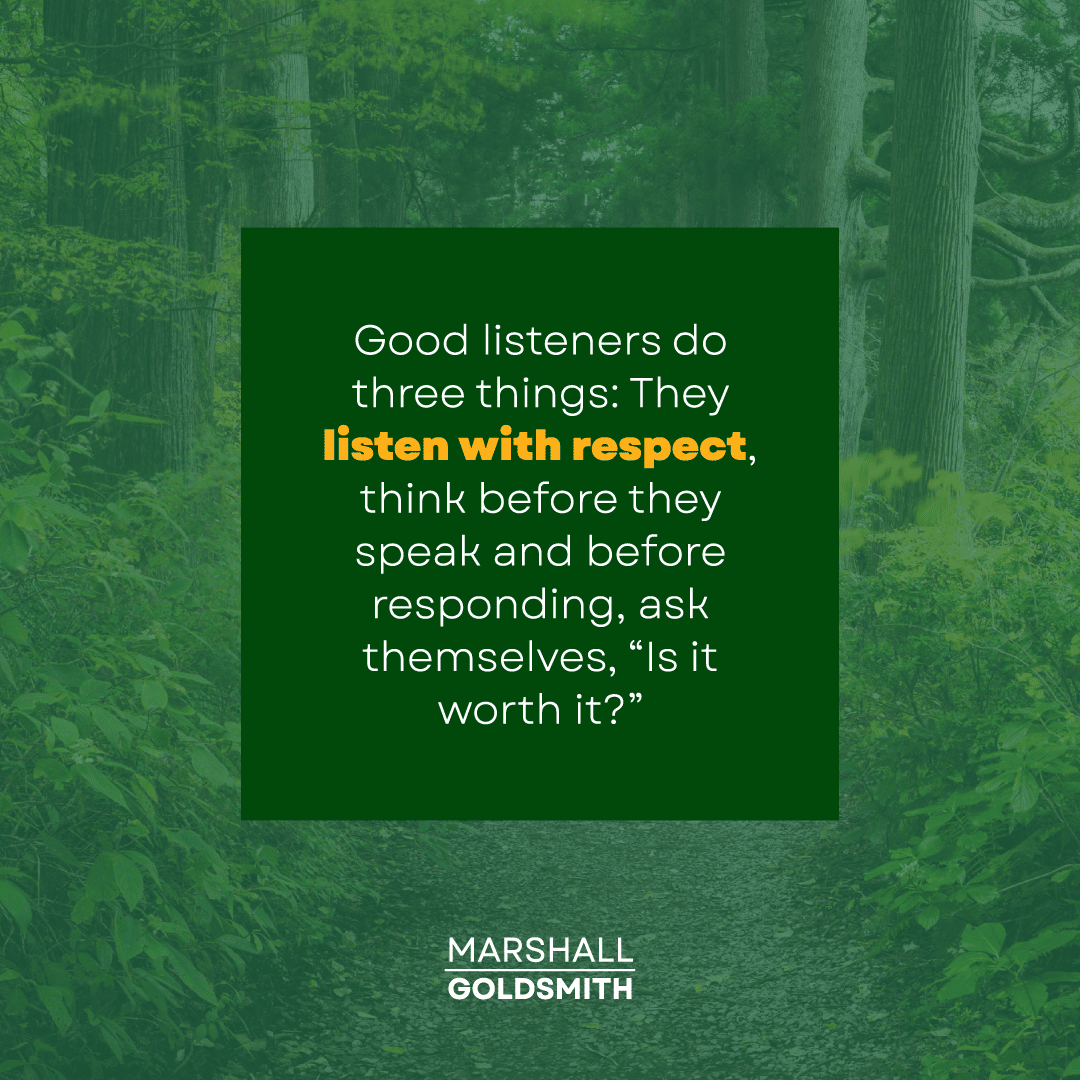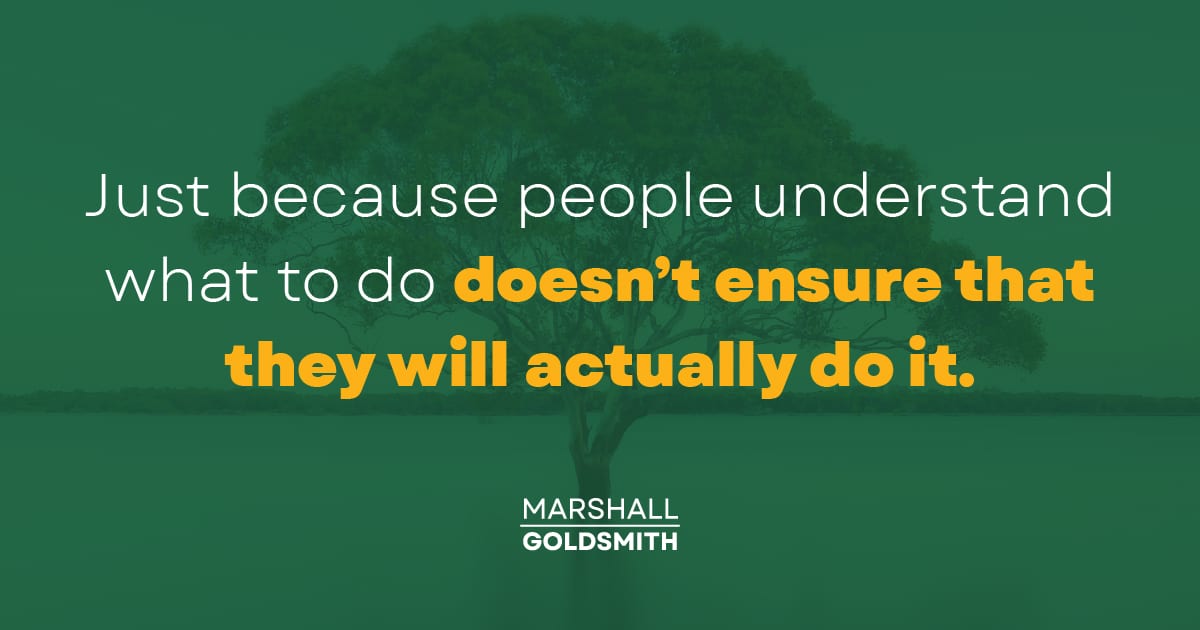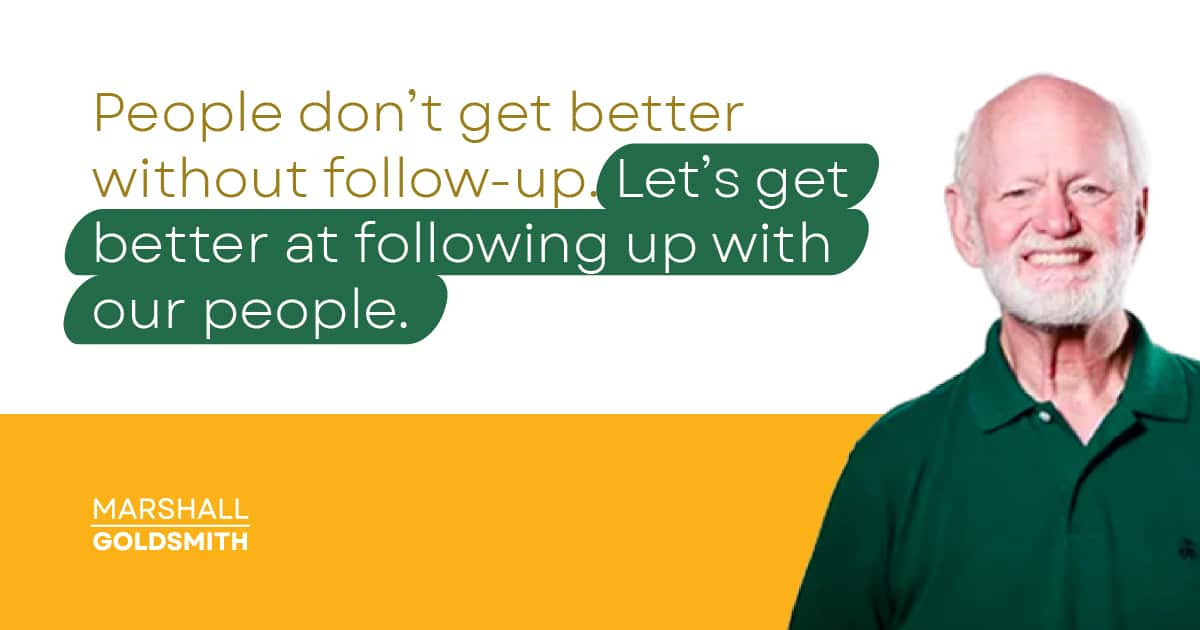Playing Favorites By Marshall Goldsmith There’s a reason I devote...
The reason I devote so much energy to identifying interpersonal challenges in successful people is because the higher you go, the more your problems are behavioral.
At the higher levels, all the leading players are technically skilled, smart, and up-to-date on the technical aspects of their job. You don’t get to be the CFO without knowing how to count, how to read a balance sheet, and how to handle money prudently.
Behavioral issues become so important in upper management. All other things being equal, your people skills (or lack of them) become more pronounced the higher up you go. In fact, even when all other things are not equal, your people skills often make the difference in how high you go.
Who would you rather have as a CFO? A moderately good accountant who is great with people outside the firm and skilled at managing smart people? Or a brilliant accountant who’s inept with outsiders and alienates all the smart people under him? Not a tough choice. The candidate with superb people skills will win out every time, largely because he will hire people smarter than he is about money and be able to lead them.

There’s no guarantee the brilliant accountant can do that in the future.
Think about how we perceive other successful people. We rarely associate their success with technical skill or brainpower. Maybe we say, ‘They’re smart,’ but that’s not the sole factor we attribute to their success. We believe they’re smart and something else, and we give them the benefit of the doubt on skill. We assume, for example, that our doctor knows medicine, so we judge him on ‘bedside manner’–how he tolerates our questions, maybe even how he apologizes for keeping us waiting too long. None of this is taught in medical school.
We apply these behavioral criteria to almost any successful person– whether it’s a CEO or a plumber. As we become more successful, the attributes on our resume recede into the background, and more subtle attributes come to the fore. Jack Welch has a Ph.D. in
engineering, but I doubt if any problems he encountered in his last 30 years at General Electric were even remotely related to these skills.
When he was vying for the CEO job, the issues holding him back were strictly behavioral–his brashness, his blunt language, his unwillingness to suffer fools. General Electric’s board of directors didn’t worry about his ability to generate profits. They wanted to know if he could behave as a CEO.
When people ask me if the leaders I coach can change their behavior, my answer is this: As we advance, behavioral changes are often the only significant changes we can make.
Winning Too Much? One big issue of successful leaders is winning too much. If it’s important, we want to win. If it’s meaningful, we want to win. If it’s trivial, we want to win. If it’s not worth it, we still want to win. Why? We like winning.
There’s a fine line between being competitive and overly competitive, between winning when it counts and when no one’s counting–and successful people cross that line with alarming frequency. I’m not disparaging competitiveness. But it’s a problem when we deploy it at the service of objectives that are not worth the effort.
Winning too much underlies nearly every other behavioral problem. If we argue too much, it’s because we want our view to prevail (we want to win).
If we’re guilty of putting down other people, it’s our stealthy way of positioning them beneath us (again, winning).
If we ignore people, again it’s about winning–by making them fade away. If we withhold information, it’s to give ourselves an edge over others.
If we play favorites, it’s to win over allies and give ‘our side’ an advantage.
So many things we do that annoy people stem from needlessly trying to be the alpha male or female in any situation … in other words, the winner.
If you’ve achieved any success, you’re guilty of this every day. When you’re in a meeting at work, you want your opinion to prevail. When you’re arguing your point, you pull out all the stops to come out on top.

Suppose you want to go to dinner at restaurant X. Your spouse, partner, or friend wants to go to restaurant Y.
You have a heated debate. You end up going to restaurant Y. The experience confirms your misgivings. Your reservation is lost, and you have to wait.
The service is slow, the drinks weak, and the food bad. You have two options: A: critique the restaurant and smugly point out to your partner that you were right. B: Shut up, eat the food, and enjoy the evening.
When I ask people: ‘What should you do, and what would you do?’ the results are consistent: 75 percent say they would critique the restaurant. Yet they agree they should just shut up and have a good time. If we do a ‘cost benefit analysis,’ we conclude that our relationship with our partner or friend is far more important than winning an argument about where to eat. And yet, the urge to win trumps our common sense. We do the wrong thing, even when we know what we should do.
A few years ago, I offered my coaching services free to one of the U.S. Army’s top generals. He asked, ‘Who would be your ideal client?’ I told him, ‘I’d like to work with someone who is smart, dedicated, hard-working, driven to achieve, patriotic, competitive, arrogant, stubborn, opinionated know-it-all. Do you think you could find me one?’ He replied, ‘Marshall, we have a target-rich environment.’ I trained many generals that year.
If the need to win is the dominant gene in your ‘success DNA’–the main reason you’re successful–then winning too much is a genetic mutation that can limit your success. LE
Marshall Goldsmith is a world authority in helping successful leaders achieve positive, measurable change in behavior, and the author of What Got You Here Won’t Get You There Visit www.MarshallGoldsmithLibrary.com
ACTION: Forego winning too much.

Adding Too Much Value Won’t Get You There By Marshall...
C-Suite Master Class: No, But, However By Marshall Goldsmith Continuing...
The Doerr Institute: Expanding the Market for Coaches By Marshall...
Making Leadership Development Part of the College Degree at Rice...
Sanyin Siang – Winner of the Thinkers50 Marshall Goldsmith Coaching...
Thinkers50 Marshall Goldsmith Distinguished Achievement Award in Coaching – Nominees...
Leading with Influence: What Is Influence360°? By Marshall Goldsmith Founder...
Are You a Dominator, Manipulator, Persuader or Influencer? By Marshall...
Leading with Influence: Redefining Modern Influence Part 2 By Marshall...
My mission is simple. I want to help successful people achieve positive, lasting change and behavior; for themselves, their people, and their teams. I want to help you make your life a little better. With four decades of experience helping top CEOs and executives overcome limiting beliefs and behaviors to achieve greater success, I don’t do this for fame and accolades. I do this because I love helping people!
As an executive educator and coach, I help people understand how our beliefs and the environments we operate in can trigger negative behaviors. Through simple and practical advice, I help people achieve and sustain positive behavioral change.